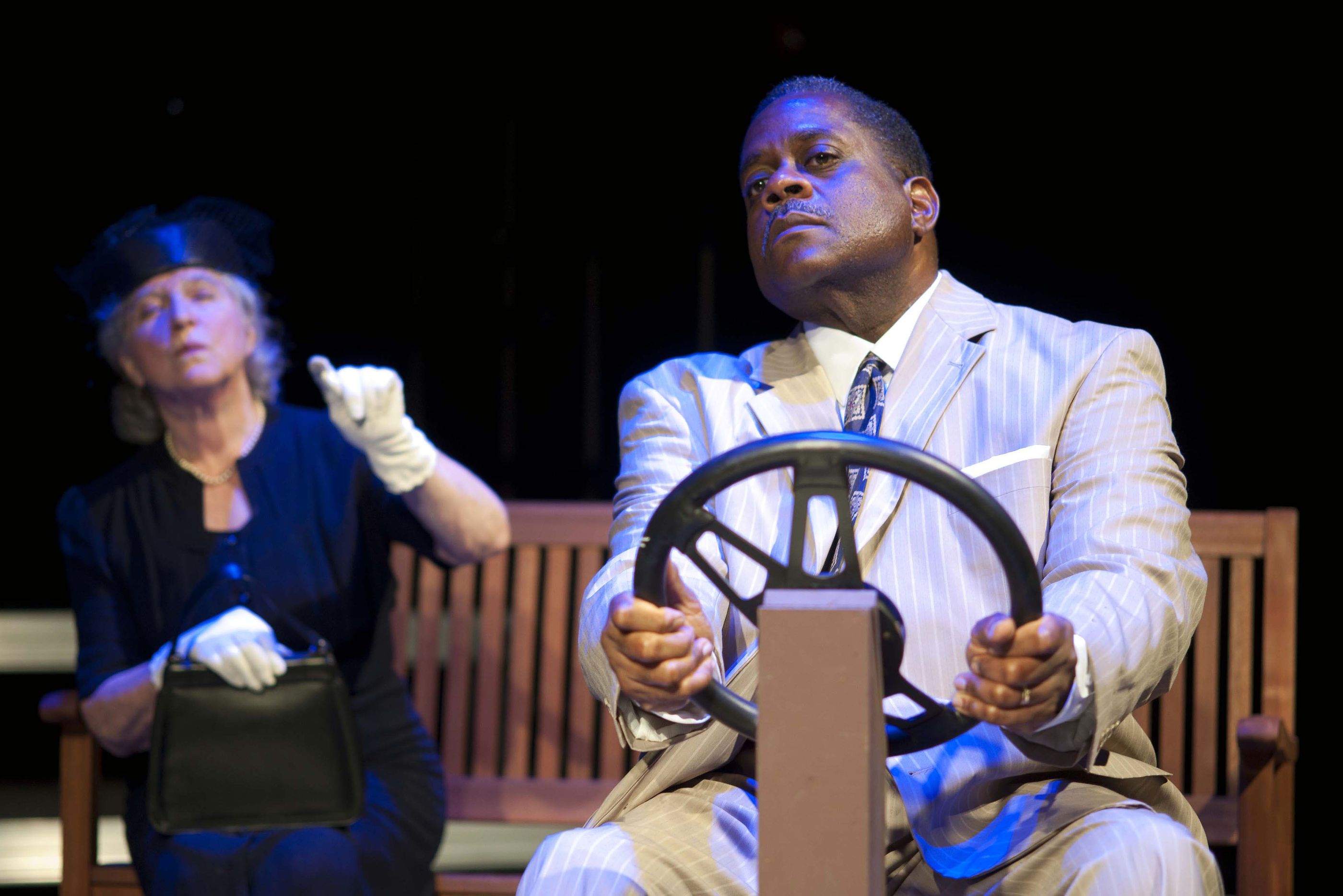Intimate production of ‘Driving Miss Daisy’ is heartwarming
Published 12:00 am Saturday, June 21, 2014
SALISBURY — For a sweet solution to hot summer nights, take yourself to see “Driving Miss Daisy” at Lee Street Theatre.
A production of The Center for Faith & the Arts’ St. Thomas Players, the play by Alfred Uhry is a gentle, loving evening, familiar to many from the movie starring Jessica Tandy and Morgan Freeman. The play came first, and director Claudia Gallup’s fine touch is visible in this case. Linda Jones — you know her from the Salisbury Symphony — is a less sharp Miss Daisy than Tandy, but it’s best to let Jones be her own Miss Daisy and not compare. Jones at first seems too young, despite the color of her hair, but she undergoes a notable transformation. She doesn’t overdo old woman, but she bends over more, moves slower, her voice softens a bit, she has a gentle head shaking.
Brian Daye at first seems too strapping, strong and young to be Hoke, but he, too, manages to build touches of aging, and by the end of the show, he has a bend, a shuffle, a slowness. Daye, an actor, playwright and director from Huntersville is a welcome addition to local theater.
The beautiful thing about the play is watching the two get used to each other and grow old together. There were plenty of sniffles by the time Miss Daisy tells Hoke, “You’re my best friend,” and more tears during the touching final scene in the nursing home.
A simple set design by Catawba College’s David Pullium, with a chair, bench and steering wheel suggesting the car, keeps the focus on the actors. There’s the kitchen table, two chairs in a corner to suggest another room, and sometimes a desk when the scene moves to Boolie’s office. Preston Mitchell is a loving son with good intentions who has to deal with his mother’s strong will and stronger opinions.
Do you need to know the story? It’s just this: Miss Daisy, at 72, wrecks her car. It’s 1948 Atlanta. Boolie insists he can find a “colored man” to drive her to the store and synagogue. Miss Daisy’s family is Jewish. Hoke is the man Boolie hires for the job, and he has plenty of warning about what kind of reception he’ll get.
Miss Daisy is angry and resentful at first, refusing to let Hoke do anything and looking for excuses to get rid of him. Hoke is patient, though, and wise. Finally, she agrees to ride with him. The play is about their lives together over the years, all the way to 1973, when Miss Daisy is 97 and Hoke is 85. Even young Boolie is retirement age by the end of the play.
Hoke and Miss Daisy see a lot of change in their lives. In Atlanta, many well-to-do women have chauffeurs. Miss Daisy doesn’t like the word chauffeur and insists she is not well-to-do. They see the civil rights movement begin, the bombing of the Jewish temple, the brilliance of Martin Luther King Jr. They laugh at the gaudy Christmas decorations Boolie’s wife, Florine, puts up. As far as Miss Daisy is concerned, “no Jew should celebrate Christmas!”
It’s lovely to see her teach Hoke how to read and funny to see Hoke negotiate with Boolie for a raise.
It’s an intimate play, all the better in this intimate space, with audience on all four sides. Cleverly, the position of the car changes so everyone can see Hoke and Miss Daisy riding along at some point during the show. It’s the kind of play that benefits from this closeness.
With just three characters on stage, the actors have a lot on their shoulders, and this trio holds up very well. The movie has more characters, more settings, more drama. This production is just fine, like the audience is sitting in Miss Daisy’s house and car, watching her life. Actors and audience connect in close quarters and the bond is lovely.
This second performance of “Driving Miss Daisy” was sold out. The production is sponsored by MedExpress Pharmacy. Remaining shows are tonight at 7:30 p.m., Sunday at 2 p.m. and June 27-29 at 7:30 p.m.
All performances are at the Lee Street Theatre & Performing Arts Center at the Tom & Martha Smith Event Center, 329 N. Lee St. For ticket sales, visit www.leestreet.org or call the theatre office at 704- 310-5507.





